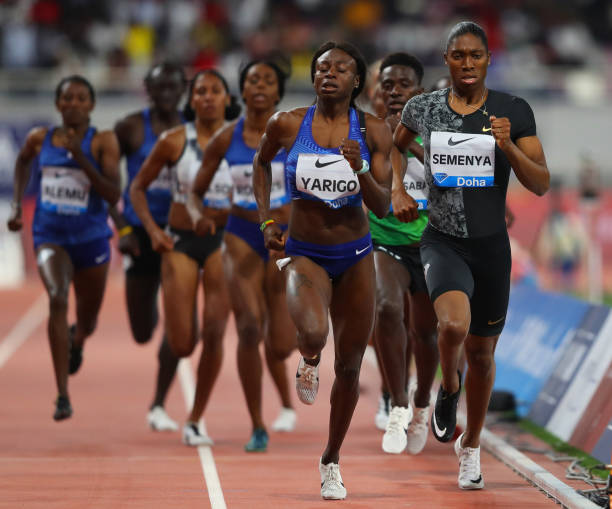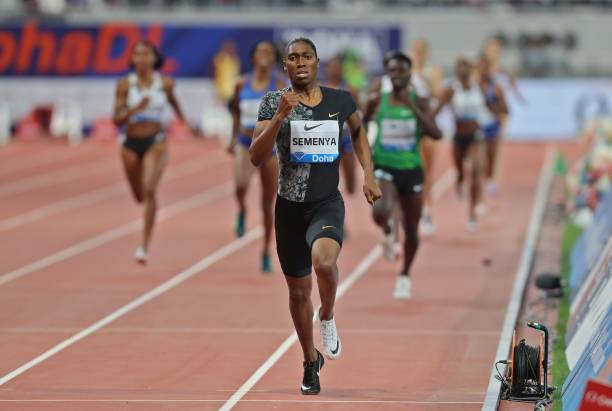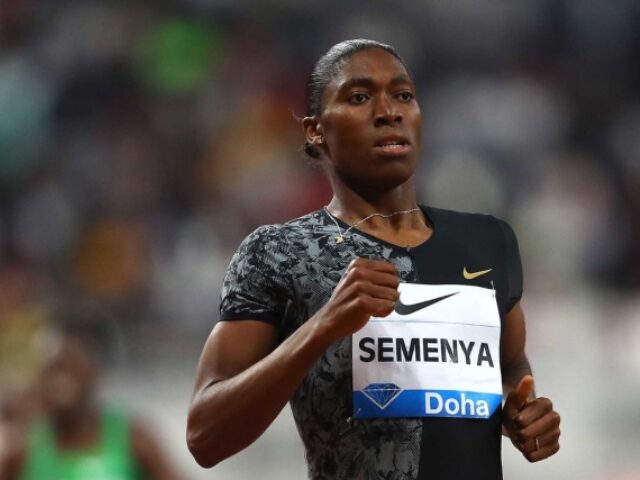The European Court of Human Rights has sided with intersex South African runner Caster Semenya and ruled that she has been discriminated against by being forced to reduce testosterone levels to be allowed to compete.
The 32-year-old South African 800m gold medalist has been prevented from competing unless her naturally high testosterone levels were reduced via medical intervention, a requirement meant to assure a level playing field for those Semenya faces on the track.

Caster Semenya of South Africa competes alongside Noele Yarigo of Benin in the Women’s 800 metres during the IAAF Diamond League event at the Khalifa International Stadium on May 03, 2019, in Doha, Qatar. (Francois Nel/Getty Images)
Current rules state that testosterone levels for female athletes cannot be higher than those of “a healthy woman with ovaries,” Sky News reported.
Semenya was reportedly born with female genitalia but was also born with a condition known as hyperandrogenism, which affords her naturally higher levels of testosterone than most women.
The runner took the case to court to stop sports authorities from requiring women with high testosterone to take suppressants in order to qualify to compete and lost in a case filed against the International Association of Athletics Federations (IAAF) in May of 2019.
At that time, the court agreed that the IAAF had discriminated against Semenya and other intersex athletes but that the discrimination was necessary to preserve the “integrity of female athletics.”
But this month’s victory has given Semenya hope that the IAAF and other sports authorities – including the Olympics — might revisit rules that would require her to take medications that artificially reduce testosterone levels.

South Africa’s Caster Semenya competes in the women’s 800m during the Doha IAAF Diamond League competition on May 3, 2019. (KARIM JAAFAR/AFP via Getty Images)
Still, it is unclear if the European Court of Human Rights court decision will have any actual impact on athletics organizations.
Despite the ruling, World Athletics has said it is standing by its rules and is not looking to make any changes.
“We remain of the view that the DSD regulations are a necessary, reasonable, and proportionate means of protecting fair competition in the female category as the Court of Arbitration for Sport and Swiss Federal Tribunal both found, after a detailed and expert assessment of the evidence,” the group said, according to Sky News.
Follow Warner Todd Huston on Facebook at: facebook.com/Warner.Todd.Huston, or Truth Social @WarnerToddHuston

COMMENTS
Please let us know if you're having issues with commenting.